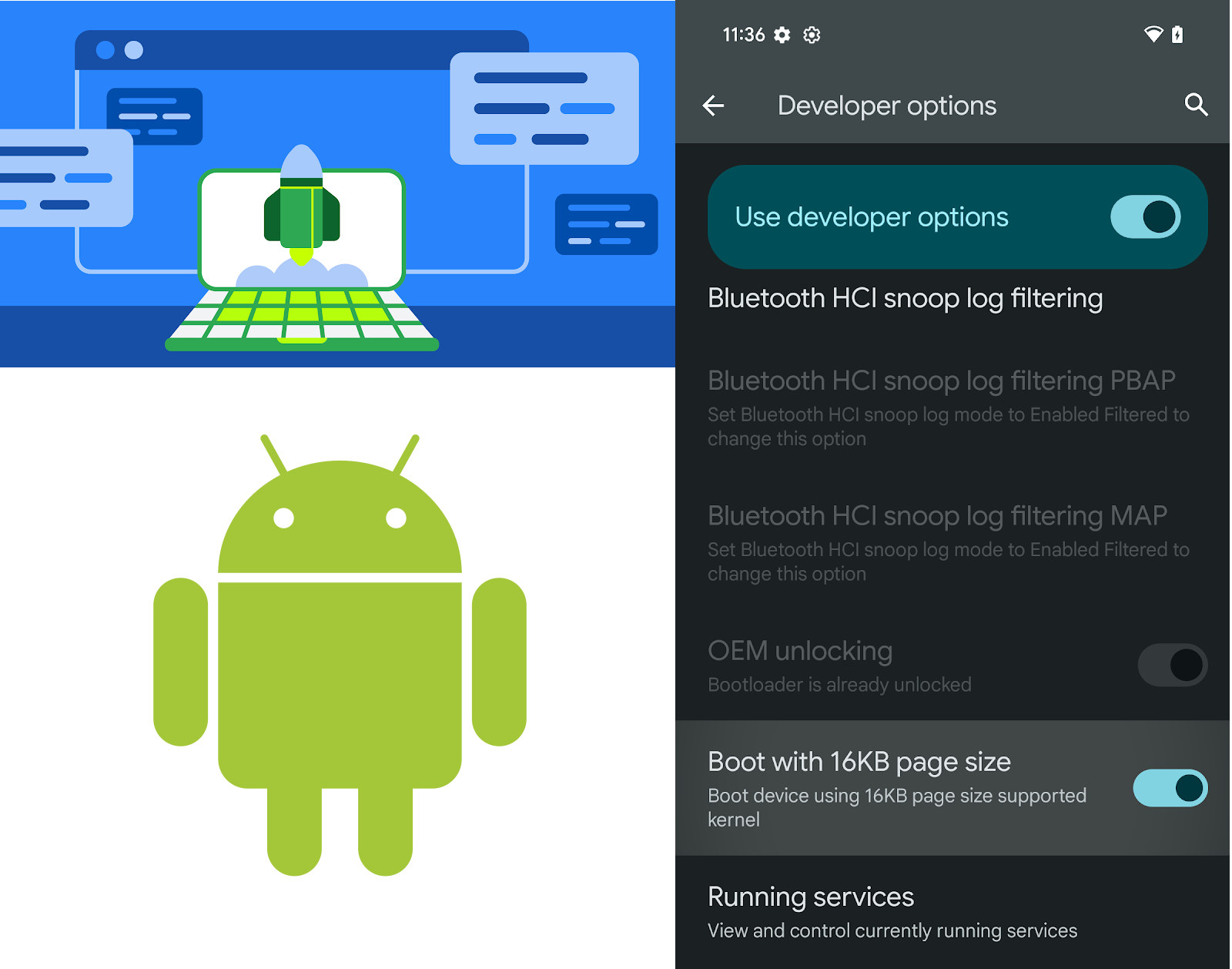A Significant Leap Forward in Mobile Efficiency
Google has announced that Android is now supporting a 16KB page size, a significant increase from the previous 4KB page size. This change is expected to boost the performance of Android devices by up to 10 percent, especially for memory-intensive tasks such as gaming and multitasking.
Understanding Page Size
In computing, a page is a unit of virtual memory that is mapped to a physical memory frame. The size of a page determines how much data can be transferred between the CPU and memory at once. A larger page size can reduce the number of memory accesses required, leading to improved performance.

Benefits of a 16KB Page Size
The move to a 16KB page size offers several benefits for Android devices:
- Improved performance: By reducing the number of memory accesses, a 16KB page size can significantly improve the performance of memory-intensive tasks. This is particularly beneficial for gaming, video editing, and other demanding applications.
- Reduced latency: A larger page size can also reduce latency, which is the time it takes for data to be transferred between the CPU and memory. This can lead to a smoother and more responsive user experience.
- Enhanced multitasking: With improved performance and reduced latency, Android devices can handle multiple tasks more efficiently, allowing users to switch between apps without experiencing significant slowdowns.
Implementation Challenges
While the benefits of a 16KB page size are clear, implementing this change was not without its challenges. One of the main concerns was the potential impact on compatibility with existing apps and libraries. To address this issue, Google worked closely with hardware manufacturers and software developers to ensure that the transition to a 16KB page size would be smooth.
Real-World Impact
The move to a 16KB page size is expected to have a significant impact on the performance of Android devices. Benchmark tests have shown that some apps can see performance improvements of up to 10 percent. This means that users can expect their devices to run faster, smoother, and more efficiently.
Future Implications
The adoption of a 16KB page size is a major milestone for Android. It demonstrates Google’s commitment to improving the performance and efficiency of its mobile operating system. As technology continues to advance, we can expect to see even larger page sizes being used in the future, leading to even greater performance gains.
Conclusion
The move to a 16KB page size is a significant step forward for Android. By improving performance, reducing latency, and enhancing multitasking capabilities, this change will benefit users and developers alike. As Android continues to evolve, we can expect to see even more innovations that will push the boundaries of mobile computing.
















Add Comment